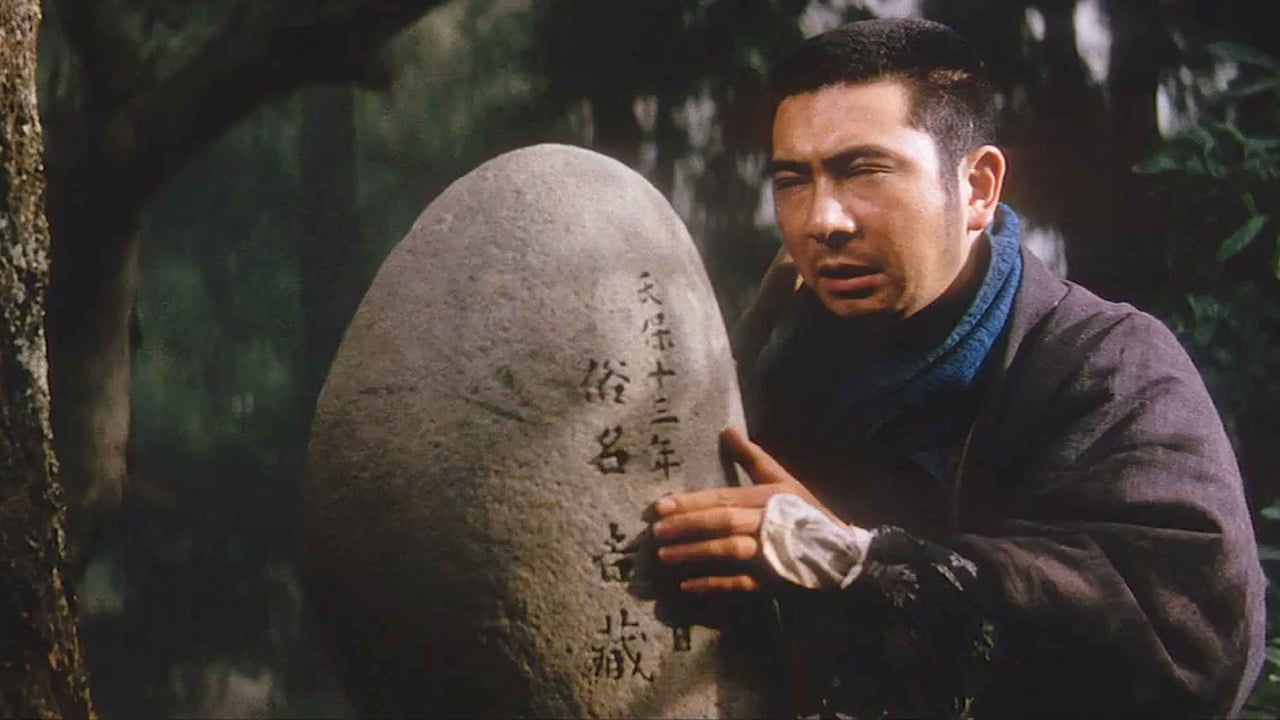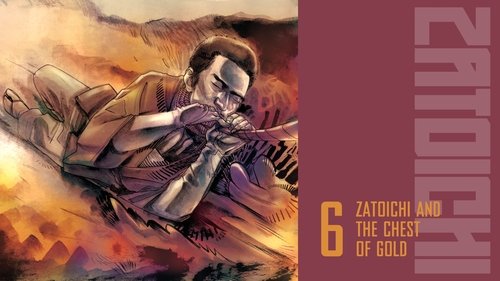AniInterview
Sorry, this movie sucks
FrogGlace
In other words,this film is a surreal ride.
Gary
The movie's not perfect, but it sticks the landing of its message. It was engaging - thrilling at times - and I personally thought it was a great time.
CCharlesIC
This sixth installment is another great, and unique, entry in the series. In the opening scene we see a montage of how many of Ichi's days unfold: walking in total darkness he is suddenly surrounded by men with drawn swords. A minute later, and with no words spoken, he continues walking into the darkness blowing his masseurs whistle - as those men bleed to death on the roadside. This happens again - and again. Such is the life of this yazuka. A masterful bit of cinematography & choreography under the direction of Ikehiro. Ikehiro would direct two more Zatoichi films.This is also the first film not to have a romantic interest for Ichi. Since the passing of his first love, Otane, in the 4th film; Ichi's heart seems no longer available to fall in love. In the early films, women were drawn to him because of his compassion for people, gentle humor, and acute moral compass. Toss in his self-sufficiency as a masseur, a keen-eared gambler, and lest we forget - swordsman extraordinaire; of course women felt they would be well cared for if he would accept them. However love seems to be only another word for curse where this zato is concerned. In the 3rd film, young Yayoi revealed she had had a crush on the slightly older Ichi as he trained under her even older brother. He seems to have harbored a crush on her too, and she proposes marriage to Ichi! Then at the finale, Ichi has to duel his former Sensai, Yayoi's brother. Both Yayoi and Ichi are emotionally crushed when the Sensei drops. Ichi has reinforced his image as a killer - not a lover - irreparably. Then in the fifth film a young and highly immature woman, Mitsu, clung to him more out of gratitude for her safety than love and not only was a generational gap revealed; but Ichi seems to have realized how rare and unlikely Yayoi and Otane's affections had been. The only romantic possibility in "The Chest of Gold" is dead Kichizo's sister, whom Ichi treats practically as a servant. What he does get, in a series first, is a "sensual massage" by a woman who had no interest in being "repaid in kind". The first instance of adult humor in the Zato series. Other firsts in this film are: an honorable boss - whom Ichi respects; a dishonest government official - in cahoots with yet another selfish boss; a village cooperative system - which amasses 1000 ryo after 3 bad years of crops(!); and a whip-wielding ronin (Katsu's real-life brother, Tomisaburo Wakayama!!) - Zatoichi briefly seems helpless against this new weapon. Overall, this is a solid entry in a mythic Chambara series. If possible, get it as part of the Criterion Collection's 25 film set.
MartinHafer
This film sure started off well. Instead of the usual credits, these were the coolest ones yet. Against a black background, Zatôichi smokes a cigarette as periodically evil men attack him and he dispatches them like flies--and continues smoking like he's the toughest guy in town!When the film itself begins, Zatôichi comes upon a humble village where they are having a celebration. It seems that after three years of drought, the villagers had a good harvest and can finally pay off the tax bill. However, when the money is stolen, the villagers stupidly believe the stranger in town (Zatôichi) did it. Considering that he's blind and doesn't leave after the theft, it sure seems ridiculous to blame him. Further, after the townsfolk beat him up, it's also very surprising that our hero would agree to help them find their stolen funds.Zatôichi assumes boss Chuji is behind the theft and makes his way towards his village. On the way, he meets a beautiful but mysterious lady. He doesn't seem to think much of this meeting, but oddly you later see this lady begging the local bosses to have Zatôichi killed. But why?! When Zatôichi finally meets up with Chuji, his assumption is proved wrong, though it IS true that some of his men were involved in the theft. Zatôichi swears to continue following the trail to the money AND also now agrees to transport a little boy for Chuji to another town. Oh, that Ichi--always helping others and not thinking one bit about himself! A bit later, most of Chuji's men are killed and he barely escapes. It seems that Monji (another boss) is NOT Chuji's friend after all and he's in league with Jushiro. At this point, if you are feeling a bit confused, don't worry. Though you may not be able to determine who exactly is who, just rest assured that Zatôichi will be administering a well-earned butt kicking!! Overall, this is a very good addition to the series. While it lacks some of the heart and back story of the best films in the series, the plot was engaging and different. Well worth seeing.
Tom (bighouseaz)
This is one of my favorite films in the Zatoichi series. The opening film credit scene is amazing. This scene is a superbly choreographed, artistic display of swordsmanship that takes place on a darkened stage with three attacks on Zatoichi. Katsu Shintaro shows that the sword is an integral part of the Zatoichi story, and he is a master of the iai style of combat.In this film Zatoichi is shown no respect. He is mistrusted by farmers, shown disdain by government officials, and finally whipped by a samurai. The samurai villain is played by Katsu's real-life brother, Tomisaburo Wakayama. In one scene Wakayama shows an incredible sword drawing technique that is as equally impressive as Katsu's.In the end, Zatoichi saves the day as always.Yet, unlike in the fourth film The Fugitive where Zatoichi is able to shake of the trials and pain of his struggles and dances off to the horizon accompanied by some toe-tapping music, in the Chest of Gold Zatoichi has been abused and beaten so badly throughout the film that he can only manage to shuffle away towards the horizon as the farmers celebrate their good fortune in the distance. It's a poignant and sad scene.
John Seal
The Zatoichi series really took off with this entry. Shintaro Katsu is, of course, outstanding in his role as the blind swordsman/masseur. What sets this one aside from the earlier entries in the series, though, is the kinetic camerawork of Kazuo Miyagawa. Utilising every inch of his Panavision frame, Miyagawa set new standards for the samurai genre, choreographing outstanding fight sequences and adding the element of gore to the recipe. For those who think widescreen mayhem began with The Wild Bunch, this is essential viewing!


